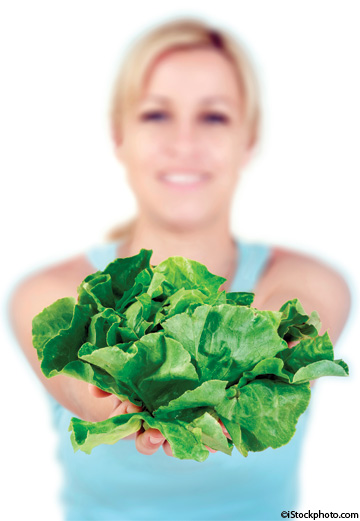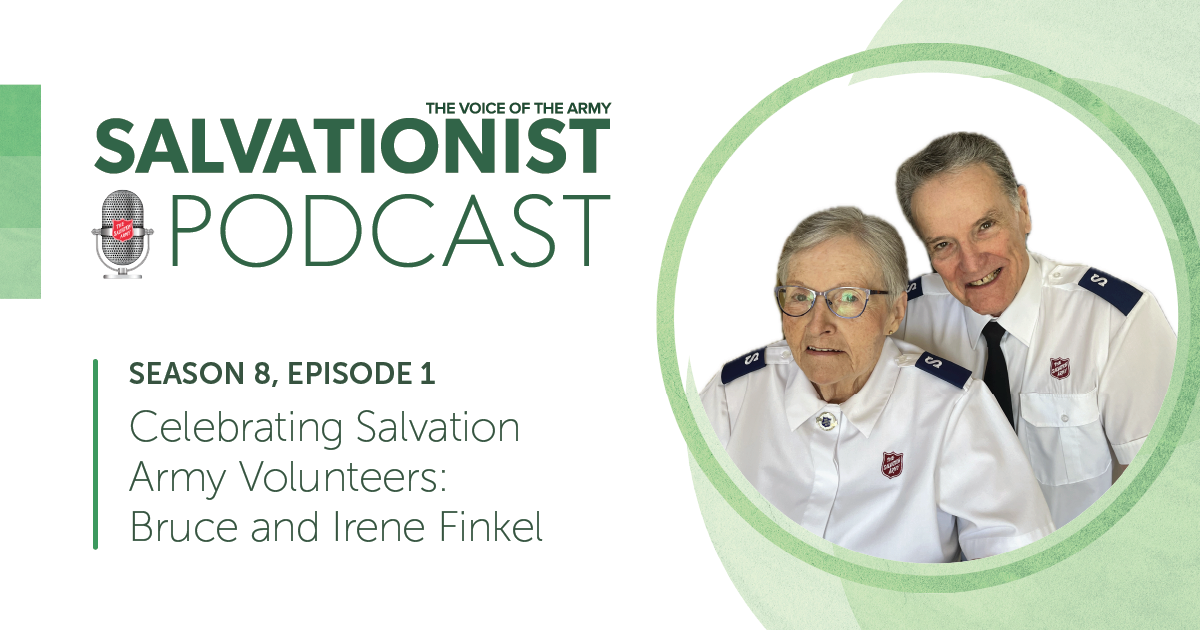 If the Booths had had their way, The Salvation Army would have been a vegetarian Movement. In the 19th century, the majority of Salvationists were former Methodists and many agreed with some form of vegetarianism, following the example of John Wesley.
If the Booths had had their way, The Salvation Army would have been a vegetarian Movement. In the 19th century, the majority of Salvationists were former Methodists and many agreed with some form of vegetarianism, following the example of John Wesley.
The Mother of the Army, Catherine Booth, was more partial to vegetarianism than her husband. Early in their marriage she wrote to William, “Have you thought any more about vegetarianism? I am inclined towards it more than ever. I am convinced of the importance of simplicity and regularity in diet … I don't think half as highly of meat (animal food I mean) as I used to do.”
It appears that William was convinced, as noted by his response to a reporter in 1909. “How do you sustain such hard work, and particularly so much public speaking at night, at your advanced age?” he was asked, to which he replied, “I owe it to my careful vegetarian diet.”
Their son, Bramwell, and his wife, Florence, were committed vegetarians. Their daughter, Catherine Booth (named after her grandmother), wrote: “Memory holds for me a gentle picture of Catherine as grandmother. I am nearly four years old. When she will not allow Uncle Herbert to give me a piece of meat I hear her speak distinctly. 'No, Herbert, she shall not have anything in this house that her mother would not wish her to have.' ”
Even though he was interested in all aspects of Army activity, Bramwell considered officer training to be vital to the Movement's success. He therefore carefully watched over this training. Not even such mundane matters as the quality and variety of diet escaped his attention. He insisted that a vegetarian “bill of fare” be provided for cadets who wished to avoid meat.
General Albert Orsborn writes in his autobiography, The House of My Pilgrimage, “When [General Bramwell Booth] was campaigning for a vegetarian diet, as he did occasionally, he depicted animals coming to us in the afterlife and saying, 'Moo! You ate me.' We youngsters loved it, but we still ate meat.”
There were many references to vegetarianism in official Army publications, such as Orders and Regulations for Soldiers. In the 1925 edition we read a familiar refrain, “Food should be simple and nourishing in character. With brown bread and vegetables, milk, eggs and fruit, there is very little need for meat, and good, vigorous health can be maintained without it.”
In the 1920s and '30s, the Army was well in advance of much of society in realizing the beneficial effects of a sound diet. The July 1925 edition of The Staff Review published an article by Commissioner Adelaide Cox, leader of the Army's women's social work in the United Kingdom, on “Treatment of the victims of alcohol and drugs.” In it she wrote, “The absence of meat has been proved to allay the craving for alcohol and drugs, and the appetite thus more easily created for milk and fruits provides a powerful antidote.”
Diet-based treatment continued to be popular. In 1953, The Salvation Army took the unusual step of publishing a book by non-Salvationist authors: We Are What We Eat, an 85-page paperback subtitled “Good health for home.” The authors, Drs. A. B. Cunning and F. R. Innes, worked with behaviourally difficult young people at The Haven, an Army children's home in London, England, which was run on vegetarian and healthy food principles. The book contains not only medical support for particular diets, but also recipes and detailed menus, all of which could be used with good effect more than half a century since their publication.
Even though The Salvation Army did not embrace vegetarianism (though individual Salvationists did), the Movement was a pioneer in the area of healthy eating. Given the recent rise in obesity rates and the related illnesses of diabetes, heart disease and high blood pressure, perhaps Salvationists should revisit this early emphasis on diet.
In some social centres across the territory, the Army has made healthy eating a new priority—a far cry from the traditional coffee and donuts. And in many of our children's programs, fresh fruits and vegetables are now offered in lieu of chips and candy.
While it's unlikely that abstaining from meat will be added to our Soldier's Covenant, we may see more Salvationists choosing to adopt the dietary principles of the Army's early leaders. Our health may depend on it.
 Lt-Colonel Maxwell Ryan is retired in Burlington, Ont., where he serves as a part-time hospital chaplain and amateur Army historian.
Lt-Colonel Maxwell Ryan is retired in Burlington, Ont., where he serves as a part-time hospital chaplain and amateur Army historian.










I would have liked to have cited a couple of your quotations, as they demonstrate real research into this largely neglected territory. The introduction of vegetarian meals to Inebriate Homes run by the Salvation Army actually began in 1903 and the Vegetarian Society drew upon the testimony of nurses in their booklet 'Opinions in favour of Vegetarianism by Leading Temperance Reformers' (1919)
The 1953 book tended to illustrate rather vividly the way in which 'vegetarianism' and 'food reform' had been drifting apart for decades; in that the latter could comprise just about any article of diet considered conducive to the physiological health of different individuals, hence the listing of liver, brains and kidneys!
It appears to me (an 'enthusiast' of this general subject and not a formal historian) that vegetarianism (as an ideal and perhaps a biblical one) was always a matter of individual discernment for officers despite some ardent recommendation from their early leadership, practical support for the lifestyle and notable relations with vegetarian organisations.